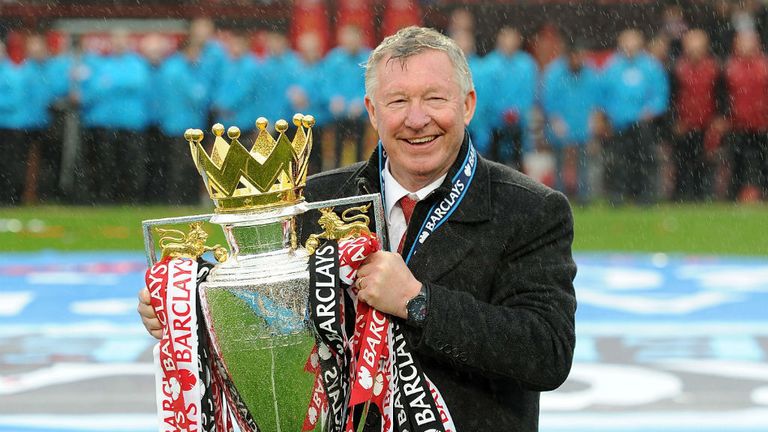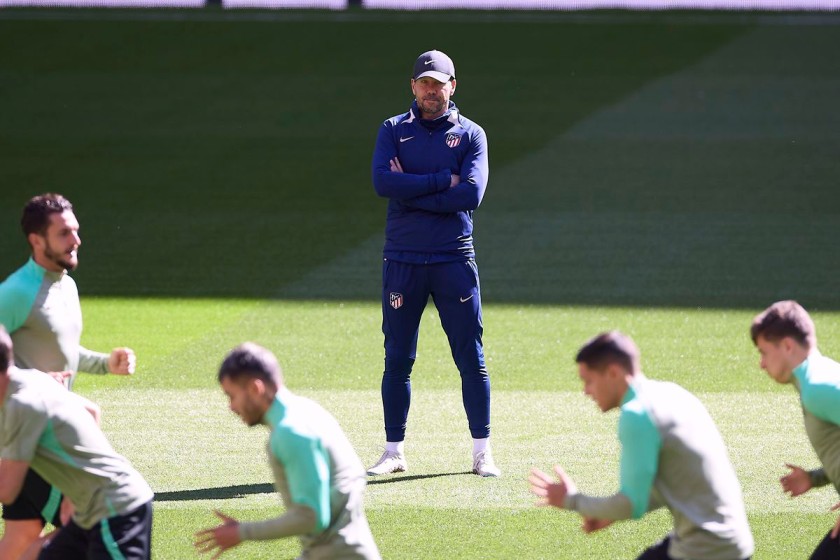Football is much more than just a game. It’s a dynamic competition full of strategy that demands discipline, teamwork, and an effective leadership style. At the center of every successful football team is a great, strong leader—the coach.
Football coaches play a dual role: they are tacticians, designing strategies to win games, and motivators who inspire their teams to reach peak performance. Leadership in football coaching can make the difference between a mediocre season and championship glory.
But what sets a great football coach apart from the rest?
Effective leadership in football isn’t just about shouting orders from the sidelines. It’s a blend of vision, communication, adaptability, emotional intelligence, and leading by example. In this article, we’ll explore these five key traits and how they define the best coaches in the world of football.

Table of Contents
1. Vision and Strategy
A coach’s vision acts as a roadmap for the team, guiding every step they take. It represents the overarching idea that influences everything from training sessions to strategies on game day.
Setting Clear Objectives
Successful coaches know the value of creating specific, realistic goals. These might include winning a tournament, helping players improve their abilities, or strengthening teamwork.
When goals are clearly defined, players gain focus and motivation. These objectives serve as checkpoints, allowing the team to see how far they’ve come and what still needs to be done.
A head coach’s vision isn’t just about immediate results. Great leaders think about the future, working to build a solid foundation for lasting success and building a winning mentality. This can involve mentoring younger players, introducing modern training techniques, or fostering a team environment based on respect, discipline, and collaboration.
Developing Game-Winning Strategies
Football challenges both the mind and the body. Coaches with a clear vision use strategic planning to gain an edge over their opponents. This means studying the other team’s strengths and weaknesses, assessing their own squad’s abilities, and creating a game plan that boosts their chances of winning.
Building winning strategies takes careful preparation, flexibility, and a strong grasp of the game’s nuances.
Communicating the Vision Effectively
A vision alone isn’t enough—it needs to be shared in a way that inspires the team. A coach’s skill in communicating their ideas effectively is essential. This involves simplifying complex strategies into clear, manageable steps so every player knows their role.
Great coaches use a variety of tools, from team discussions and one-on-one talks to video analysis or data analysis and motivational halftime speeches. They excel at fostering belief and commitment within their players, uniting the team around a shared goal.

2. Communication Skills
A coach’s ability to communicate well can turn a group of players into a united team. Communication isn’t just about giving directions; it’s about building connections, earning trust, and creating a shared vision.
Building Trust and Understanding
Trust is the backbone of a strong team. Players need to know their coach cares about them and their development. Clear and thoughtful communication fosters this trust.
Whether it’s giving helpful feedback, checking on a player’s well-being, or celebrating their successes, great coaches make players feel valued and understood. This strengthens the relationship, leading to mutual respect and loyalty.
Motivating Players Through Words
The right words can inspire, uplift, and energize. Great coaches understand how to say the right thing at the right moment. A pre-game pep talk, halftime strategy adjustment, or words of encouragement during tough practices can make a huge impact.
Effective communication builds confidence, keeps players motivated, helps the players to show that they can cope with leadership positions or be captains on the football field, and enhances the team’s sense of unity.
Handling Conflicts Constructively
Conflict is inevitable in any team setting, whether it’s between players or between the coach and the team. Players who stay on the bench with limited playing time can be the reason for such conflict.
An effective leader doesn’t move away from difficult conversations. Instead, he address conflicts head-on, using open dialogue to find solutions.
3. Adaptability
Football is an unpredictable sport. Injuries, unexpected weather conditions, or an opponent’s surprise tactics can all derail a carefully crafted plan. Great coaches must always overcome such obstacles by being adaptable.
Adjusting Strategies Mid-Game
Sometimes, things don’t go as planned during a match. The other team might dominate, or a key player might get injured. In these situations, a coach’s ability to adapt becomes crucial.
Quickly changing tactics—like adjusting formations, making substitutions, or switching strategies—can make the difference between success and failure.
Embracing Innovation in Football Tactics
Football is constantly evolving, with new strategies, technologies, and training methods emerging every year. Coaches who embrace innovation—whether saying a “well done” to the performance analyst for using data analytics to study opponents or incorporating modern training techniques—give their teams a competitive edge. Adaptable leaders are open to change and eager to learn, ensuring they stay ahead of the curve.
Staying Calm Under Pressure
Pressure situations, such as penalty shootouts or high-stakes finals, test a coach’s leadership skills. Adaptable leaders remain calm and composed, guiding their teams with confidence and clarity. Their ability to make correct decisions under stress inspires their players to stay focused and perform at their best.

4. Emotional Intelligence
Football is an emotional game. From the highs of victory to the lows of defeat, players experience a wide range of emotions. Coaches with high emotional intelligence can connect with their players on a deeper level, creating a supportive and motivating environment.
Understanding Players’ Emotions
Each player is different, with their own goals, fears, and sources of motivation. Some excel under pressure, while others need extra support to build confidence.
Emotionally aware coaches take the time to understand these individual differences and adjust their approach accordingly. This not only helps players perform better but also builds trust and a stronger bond between coach and player.
Building Team Morale
A team with good morale can achieve incredible things, even in challenging situations. Coaches are key to building this morale.
By organizing team activities, celebrating small wins, and staying positive during difficult times, emotionally intelligent coaches know how to keep the team motivated and united.
Managing Stress Effectively
Coaches face huge pressure, from demanding fans to high-stakes games. Those with high emotional intelligence manage this stress effectively, staying composed and focused. Their calm behavior has a significant effect on the team, enabling players to perform with clarity and confidence.

5. Leading by Example
Actions speak louder than words, and the most effective coaches show the way through their behavior. They represent the values they want their players to adopt, setting the standard for the entire team.
Showing Discipline and Commitment
Coaches who arrive early, plan thoroughly, and work hard motivate their players to do the same. Their effort establishes a culture of discipline and commitment, raising the bar for everyone involved.
Of course, soccer coaches may have different leadership styles but the aim is always to build a team cohesion
Displaying Ethical, Strong Leadership in Football
Honesty and fairness are key to ethical leadership in football. Coaches who prioritize these principles gain the trust and admiration of players, staff, and fans. They make decisions that serve the team’s best interests, even when those choices are difficult.
Inspiring Respect
When a coach leads by example, they become a role model for their team. This builds respect and encourages players to emulate their actions. Whether it’s displaying good sportsmanship after a defeat or staying focused under pressure, strong leaders inspire their teams to mirror their conduct.
The Role of Leadership in Football for Building a Legacy
Exceptional football coaches don’t just aim for short-term success; they strive to leave a lasting legacy. This means nurturing young talent, fostering a winning culture, and instilling values that transcend the sport.
Iconic coaches like Sir Alex Ferguson, who dominated the Premier League for decades, Pep Guardiola, with his exceptional Positional Play, and Johan Cruyff, with FC Barcelona, have not only won trophies but also shaped the future of football with their innovative approaches and leadership philosophies. Their legacies serve as a testament to the enduring impact of great leadership in football.
Conclusion
Leadership in football, and especially in professional football, is a multifaceted skill that combines vision, communication, adaptability, emotional intelligence, and leading by example.
A great coach isn’t just a tactician; they are a mentor, motivator, and role model who inspires their team to achieve greatness.
By mastering these five traits, aspiring coaches can not only achieve success on the field but also leave a lasting impact on their players and the sport as a whole.
30 Possession, Positional and Small Sided Games

Dive into the world of tactical mastery and player development with an expansive collection
- High Tempo Football
- Players develop their technical skills and tactical understanding
- Players cultivate essential life skills such as communication, leadership, and resilience.
- They learn to adapt to varying game situations
- Think critically under pressure, and collaborate effectively with teammates
- Forging bonds that extend beyond the final whistle.
FAQs
1. Why is vision important for football coaches?
Vision provides direction, helping players understand their roles and work toward common objectives.
2. How can a coach improve communication skills?
Coaches can enhance communication by practicing active listening, seeking feedback, and delivering messages with clarity and empathy.
3. What role does emotional intelligence play in coaching?
Emotional intelligence helps coaches connect with players, manage team dynamics, and create a positive environment for growth.
4. Can adaptability be learned, or is it innate?
Adaptability can be developed through experience, a willingness to learn, and a proactive mindset.
5. Why is leading by example essential for effective coaching?
When coaches model discipline, integrity, and commitment, they inspire players to emulate these values, creating a culture of excellence.

